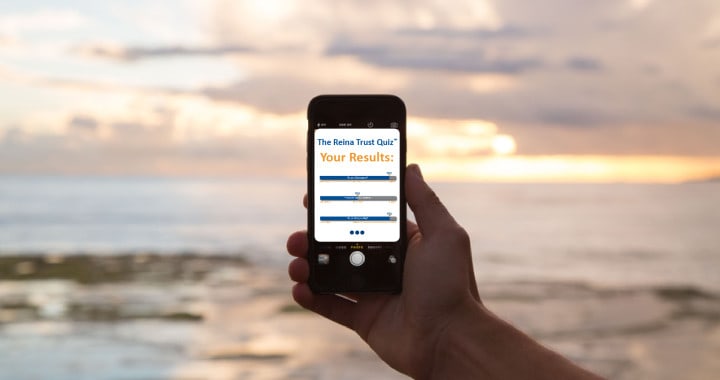Photo Courtesy: Giorgio Montersino
Under CEO Marissa Mayer, in the last year more than one-third of Yahoo’s employees have parted ways with the company – either voluntarily or involuntarily. In the coming months, another 15% of Yahoo’s workforce is slated to be fired.
Or, as Mayer prefers to say – “remixed.”
“Ms. Mayer has steadfastly refused to use the word “layoff” to describe the thousands of jobs eliminated since she joined the company,” reported The New York Times. “She even forbade her managers from uttering what she called “the L-word,” instructing them to use the term “remix” instead.”
Mayer’s termination policies have caught the attention of courts in California, where Yahoo is headquartered. Under California law, companies engaging in mass layoffs are required to give employees 60 days advance notice. Despite the large numbers of employees it’s forced to leave its ranks, reports are that Yahoo has provided no such notice.
If the courts determine Yahoo’s been conducting mass layoffs under the guise of performance-based terminations, thousands of former Yahoo employees will be eligible for back pay and damages. If the courts decide in Yahoo’s favor?
Yahoo – and Mayer – still face an uphill battle in the court of public opinion:
- “Yahoo’s Marissa Mayer Has An ‘Invest/Maintain/Kill’ List” (Fortune)
- “How Marissa Mayer is Spinning Yahoo’s Layoffs” (Inc.com)
- “Yahoo’s Marissa Mayer has a list of layoffs…but will she end up on it?” (Vanity Fair)
Clearly, Mayer – and by proxy Yahoo – have a trust problem. When it comes to the viability of an organization, compromised trust is the canary in the coal mine. Why?
Because business is conducted through relationships, and the foundation of effective relationships is trust.
The question is, can Mayer rebuild trust in her leadership and throughout Yahoo? In our nearly 25 years of experience in rebuilding workplace trust with leaders around the world, the answer is yes…if Mayer demonstrates a sincere commitment to leading her people through the following steps:
Step One: Observe and Acknowledge
Turning around an environment struggling with trust starts with honest reflection, courageous examination, and assessment. It takes courage to take stock of where trust stands and acknowledge the specific behaviors that caused trust to erode and for relationships to head south.
This isn’t the time for generalities and labeling. It’s not the time to attack character. This first step is to assess and acknowledge the behaviors that broke trust in the first place, and how those actions impacted people’s lives. After all, what’s not acknowledged can’t be restored.
Step Two: Allow Feelings to Surface
Trust is emotionally provocative. When people experience trust being eroded, they feel it. Consider the last time your trust took a hit at work. What emotions surfaced?
People tell us when trust is compromised they feel everything from frustration, to anger, to devastation. They feel loss – the loss of their energy, focus, and productivity. And, in cases such as this, the loss of their relationships, particularly with people they’ve worked closely.
Often, the people who’ve been laid off are people others have cared about. People they’ve collaborated with…gone to the wall with…been with through thick and thin. When those people leave, it hurts. There is a loss, and with loss comes emotion.
In an environment of layoffs, people also tell us they feel vulnerable and fear for their jobs. Instead of stepping up to meet current demands, they withdraw. In these situations, people need a safe container to vocalize their concerns and discuss vulnerabilities constructively. They need support to move through the impacts of eroded trust, embrace the changes, and prepare to move forward.
Step Three: Get Support
We’ve seen people rebound, grow, and even prosper through broken trust…with support.
People can actually benefit from what disappointed them and took them down.
When trust is compromised (whether at work or at home), people – you – need support from impartial and objective confidants. Judging, criticizing, or heaping blame on the person who made trust vulnerable isn’t what’s needed. While those actions may be an easy default in the short term, they’ll only trap people dwelling in the past.
What’s most valuable at this time is perspective…exploring options…gaining an objective understanding of the bigger picture and working through doubt, confusion, and frustration.
Step Four: Reframe the Experience
With objectivity comes the ability to reframe experiences of broken trust within a larger context. Through looking at the extenuating circumstances that contributed to the break down, people can begin to shift from blame to problem solving. They can see options to move forward.
They may even begin to view the person who broke their trust through the lens of compassion, rather than blame.
Reframing helps people transform their traumatic experiences to opportunities for learning and growth for everyone involved. People can look at what they have, what they’ve learned, and how – as a group – they’ve even benefitted from what’s happened.
In our work, we’ve seen it time and again. When people are appropriately supported to reframe, they discover fresh appreciation for one another, both as colleagues and as human beings. They gain greater insight into what they truly need to from one another to do their best work, and learn how to deliver on those needs.
Instead of trying to trying to distance themselves from their situation, they step into it begin to leverage it.
Step Five: Take Responsibility
When people are suffering within a lower trust culture, it’s normal for them to project their negative feelings onto others – to lay blame and sidestep responsibility. However, people who successfully rebuild trust take ownership of their behavior in response to the conditions they are facing.
They ask themselves, ‘what can I do now to take charge of my situation? What I might be doing to contribute to a downward spiral of trust? Am I pointing the finger? Am I painting other people in black-and-white terms, as ‘all wrong’ or ‘all bad?’ Am I talking about – rather than with – people when I have concerns?’
The truth? Even if not responsible for what happened, we all have responsibility for how we respond.
Step Six: Forgive
When people don’t forgive one another, they cling to their anger, resentment, and bitterness like a security blanket. We often hear people talking about a breach of trust that happened 5, 10, 15 years ago.
No matter how egregious they were, hanging onto past hurts doesn’t help you…or anyone else.
Learning to forgive releases people from this pattern of negative behavior and allows them to approach others with a sense of compassion. Forgiveness is less about letting the other person “off the hook,” and more about freeing oneself from the baggage of negativity, bitterness, and blame.
Forgiveness is a gift you give yourself.
Step Seven: Let Go and Move On
In this final stage, people are supported to accept the situation without blame. They look back over their experience, reflect on the lessons they learned, and think about what behaviors they can practice to ensure a healthier, more productive working environment in the future.
We are not here to judge or criticize Mayer’s decisions, words, or actions. However, we can use the impression of broken trust as an opportunity to learn.
The truth?
We all find ourselves up against a wall at some point in time as the result of what has happened either to us or around us.
What we do when we’re up against the wall is what builds trust…or breaks it.
Final note: Using these Seven Steps for Rebuilding Trust, we’ve seen people in a multi-billion dollar communications firm completely transform their relationships – both within top leadership, and throughout the company. Through taking responsibility to rebuild trust, these people repaired severely damaged management/employee relationships in time to successfully navigate a major change initiative.
In their own words:
- “Relationships can overcome betrayal.”
- “This process can and has made relationships stronger.”
- “The good results we have as a team and as individuals are linked to the level of trust we have in the team.”
- “I got my power back.”
Yours in trust,
Michelle Reina














